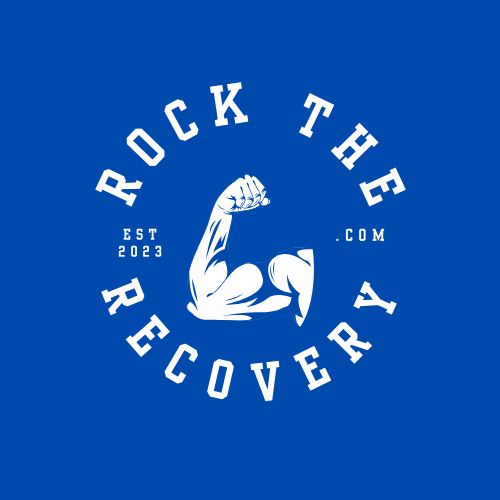While visiting a family member in Rehab I heard the following series of events.
Scene: Patient is sitting on a self-assisted bicycle doing legs.
 PT: “great job you are all set, you did 15 minutes.”
PT: “great job you are all set, you did 15 minutes.”
In walks the O.T. to the clinic.
OT: “Are you all done with her? I still need to see her.” 
 PT: “yep we are all set”
PT: “yep we are all set”
OT: “Okay great, let’s do some arm biking for 20 minutes.” 
The pt doesn’t move, the stressed, exhausted O.T. takes her feet off, puts hands on and resets the bike. Then crammed his nose into his laptop to document.
At this point I looked at my watch and called the time of death of Rehab Therapy. Listen, do I use the bike? Some, but 35 minutes of unskilled, tooling around on a bike is not okay. How did we get to this point?
The Good ol’ Days:
Let’s go back a few years. My journey in SNF/Rehab Therapy started roughly 8 years ago. At the time Therapy was King. Therapist Med A treatment minutes mattered greatly toward, say it with me: “the bottom line” $$$. Treatments were 60-75 minutes each; and your day was 6-8 pts. Caseloads were quite reasonable, and patients were given ample time to quality care. Then a few things happened around the same time.
When it all fell apart for us:
First, Commercial insurances started to drastically cut the amount of time pts were approved for. All of a sudden you now had multiple people on your caseload who were not safe to be discharged with no means to private pay. We had more forms and templates to fill out so insurance companies could use this information to cut the patient. “You’re progressing too well; or you aren’t making enough progress; or you don’t have any potential to improve.” We heard it all.
Then, came October 1st, 2019, and the PDPM model came to exist. All of a sudden Therapy minutes were basically unimportant to the people on top. Enter group treatments, and concurrent treatment that meant overlapping patients. Very quickly many facilities began to downsize with layoffs. Treatment minutes dropped to 30-45 minutes, and caseloads increased to cover our lost comrades. Daily treatments shot up to 9-13. On top of that we were told Contact guard assist and Supervision Assist were basically the same thing. Plus, add even more bureaucratic forms: GG’s.
Around the same time of PDPM, in entered the contract companies. First course of action: cutting salaries, and significantly increasing productivity expectations. Of course, the market was going to follow suit. So, in a matter of a short time, our days got longer, with more documentation and less time to do it. Adding the complications of groups, and unrealistic length of stays, and all while being undervalued. All within a very short time.
Five months after the start of PDPM, Covid-19. We all know what happened, I don’t want you to relive the years of plastic gowns, N-95 masks covered by face shields. What does need mention is that over that time were the “great resignation years.” The turnover in rehab facilities was immense. We all had to cover those patients while our DOR scrambled to find new hires. We all had to constantly be shadowed by new hires who needed training. Not to mention many of those who left were never replaced, due to budget cuts which meant more and more rooms to be covered…more responsibility from every angle.
Meanwhile we watched as nurses were getting rich off of gobs of money that was being thrown at them just for showing up. While also having no one to treat since no one was up or hadn’t eaten breakfast due to staffing shortages. Frustrating, no? Need I go on?
Okay, I think I painted a vivid enough picture. When I started PT school, I remember PT was always on the “Top 10 best Professions Lists.” Now I can’t help but feel bad for the students we have on clinicals. Over the last 4 years our healthcare system has developed a generation of Therapists who are just holding their breath for the next horrible thing to come down the pipe that will make our jobs even more stressful. In the same instance who has time to hold their breath with these completely unrealistic expectations? We got into this profession to help people, but many of the Therapists I see just seem to be trying to “survive until it’s time to leave” and how can we blame them? We’re tired, stressed, and jaded. It often feels like we as well as our profession are circling the drain.
So, what are we going to do about it?
Its time…it seems the pandemic is over, the drastic turnover has stopped, and the dust is finally starting to settle. It’s time we look toward the future and how to improve our situation. As Therapists we need a reawakening to allow us to remember why we got into this job in the first place.
Unfortunately, life is not going to go back to what it was 8 years ago. One of my bosses always used to tell me how 25 years ago, insurance companies would pay for your hot tub costs to help with your low back pain. My other coworker told me that 15 years ago, they had an hour lunch and documentation was a few check marks on a piece of paper. Holiday parties were always a big gathering with free buffet lunch, drinks and hours of time blocked off. We aren’t going back; so, we need to look forward.
Looking forward:
As the chaos seems to be settling, the administrations need to invest again in their Therapy dept. By doing so they are investing in their patients’ recovery (as well as their Therapist’s sanity). Hire that one extra Therapist to ease the burden on everyone’s schedules; hire that vacant office manager position so that the DOR can be available when you need them. Put time aside to allow having time for team building, time for continuing education to diminish our stress and rekindle our love and passion for what we do.
Here locally we are also seeing a trend on going back to in house depts and booting out the contract companies! Medicaid rates have increased in New York. Nursing staffing has leveled off. It’s time that trickles down to Therapy!
Listen it’s hard out there right now, but we each have a responsibility to look up from our laptops and provide a skilled session full of Therapeutic value. Otherwise, we are not only holding back the pt, but also our value for the future. I almost titled this article the “dumbing down of PT” because with everything going against us, who has the time or energy to do any better. It can feel like either you dumb it down, or you burn out. If our treatment outcomes do not impress our patients or other healthcare providers, then we leave ourselves vulnerable for greater issues down the line. We provide a service, and we need to do that well to show our worth again.
Were we dealt a bum hand? Yes, but if we are ever going to forge ahead in the years to come, we need to find that passion to look up, care plan, and treat the individual needs of that person. It’s time we start to let go of the “trauma” that the last 4 years have caused. We, and our employers need to start looking to Rebuild, Reorganize, and Re-instill our core purpose; and show our worth to everyone.
I have no idea what the future will hold for our profession. Will things change at a federal level? I doubt it. Of course, lobbying through the APTA/AOTA is important. Do you have the ear of the administration of your facility? Unlikely, but we do need to advocate for ourselves as a group. Let’s start with small internal changes.
First is providing compassionate and individualized care to our patients; Show your worth. Second is by improving the atmosphere of the dept. Stress and negativity are more contagious than Covid and we can see it through your mask. Pick your head up and shake off the trauma. Third its time in the SNF setting to reassess the way we do things. We need to stop, take a breath and look at the processes and policies that desperately need to evolve. Why for instance do I write the same information in 5 different places? Its 2023 for crying out loud! We need to streamline!
I hope this article has let you reflect on possibly some lingering stress that you have held onto for the past 4 years. I also hope that this article puts you on a path to advocate for change in your SNF/Rehab but also in yourself. Give the bike a rest for a bit and find your patient and passion again. We can all get through this together.
Enjoy this article? Follow us for more resources on Facebook!
Enjoy other practitioner articles from Rocktherecovery.com


